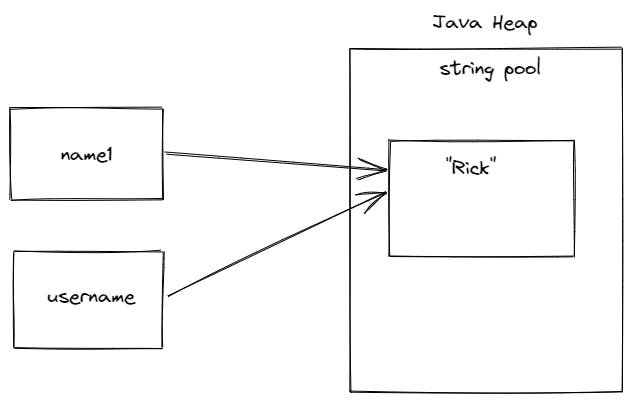Unalterable Strings: A Key Component in Ensuring Data Uniformity and Reliability
In the realm of information management, the relevance of unalterable strings can not be overstated. The concept of immutable strings transcends simple formality; it is a linchpin in the facility web of information governance.
The Concept of Immutable Strings
Unalterable strings, a basic principle in programs, describe strings that can not be changed as soon as they are produced. Fundamentally, once a string value is appointed, any kind of procedure that shows up to customize the string really produces a brand-new string. This immutability makes certain data uniformity and reliability in applications, as it avoids unexpected modifications to the original information.
Benefits in Information Consistency

Information uniformity is vital in various aspects of software advancement, consisting of database management, multi-threaded atmospheres, and dispersed systems (Why are strings immutable in Java?). Unalterable strings add substantially to achieving this consistency by preventing information corruption because of simultaneous accessibility. In circumstances where multiple processes or strings engage with the same data all at once, unalterable strings function as a guard against race conditions and synchronization problems
Furthermore, the immutability of strings streamlines debugging and testing procedures. With immutable strings, developers can rely on that as soon as a string is established, it will certainly remain unchanged, making it easier to map the source of errors and making certain that test cases create consistent outcomes. This integrity in data handling ultimately results in much more secure and durable applications.

Applying Unalterable Strings
Guaranteeing the immutability of strings needs a thoughtful method to their implementation in software application growth. One crucial technique is to design string courses in a manner that stops modifications once a string item is created. By making strings immutable, programmers can improve information consistency and integrity in their applications.
To carry out immutable strings properly, developers must favor producing new string objects rather than changing existing ones. This practice makes certain that when a string is appointed a value, it can not be transformed. In addition, any procedure that shows up to change the string ought to develop a new string with the preferred adjustments rather than changing the initial.
Moreover, making use of immutable strings can simplify concurrency monitoring in multi-threaded settings. Because discover this immutable strings can not be changed after development, they can be securely shared amongst several threads without the threat of data corruption.
Function in Integrity Guarantee
In software development, the use of unalterable strings plays an essential duty in ensuring the integrity of data procedures. Unalterable strings, as soon as produced, can not be changed, making sure that the information they stand for remains constant throughout the application's implementation. This immutability residential property gives a level of assurance that the data being processed will not be inadvertently changed, resulting in unanticipated end results or errors in the system.
By incorporating immutable strings into software design, developers can enhance the reliability of their applications by lessening the dangers associated with mutable information - Why are strings immutable in Java?. Unalterable strings assist in avoiding information corruption or unintended alterations, which can be particularly critical when dealing with delicate info or when data stability is vital
Moreover, making use of unalterable strings simplifies simultaneous processing, as multiple strings can safely access and share string information without the threat of one string changing the content while an additional is reading it. This element adds considerably to the total dependability of the software system, ensuring predictable and consistent habits in data taking care of procedures.
Applications and System Integration
The smooth combination of immutable strings right into different applications and systems is essential for ensuring durable information uniformity and reliability throughout diverse technical environments - Why are strings immutable in Java?. Unalterable strings play an important role in boosting the integrity of information exchanges and interactions within complex software ecosystems. By integrating unalterable strings into applications, programmers official site can alleviate the risks associated with data tampering, unapproved modifications, and unintentional alterations, consequently fortifying the general safety stance of the system
In the context of system combination, unalterable strings serve as a foundational element for establishing safe and secure communication channels and helping with smooth information transfers between various components. Their unalterable nature ensures that information transferred in between systems remains the same and proven, lowering the chance of inconsistencies or errors that might jeopardize the integrity of the whole system. In addition, immutable strings can enhance interoperability between diverse systems by giving a standard format for information representation, enabling much more efficient information handling and exchange methods across interconnected systems. By taking on unalterable strings in applications and system assimilation processes, organizations can fortify their data framework and promote the reliability and consistency of their details possessions.
Conclusion
Finally, immutable strings play a critical function in keeping data uniformity and integrity in different applications and system assimilations. By making certain that strings can not be altered once created, the stability of data is preserved, minimizing the threat of errors and disparities. Implementing immutable strings can significantly enhance the reliability of systems, eventually leading to even more reliable and exact information processing.
